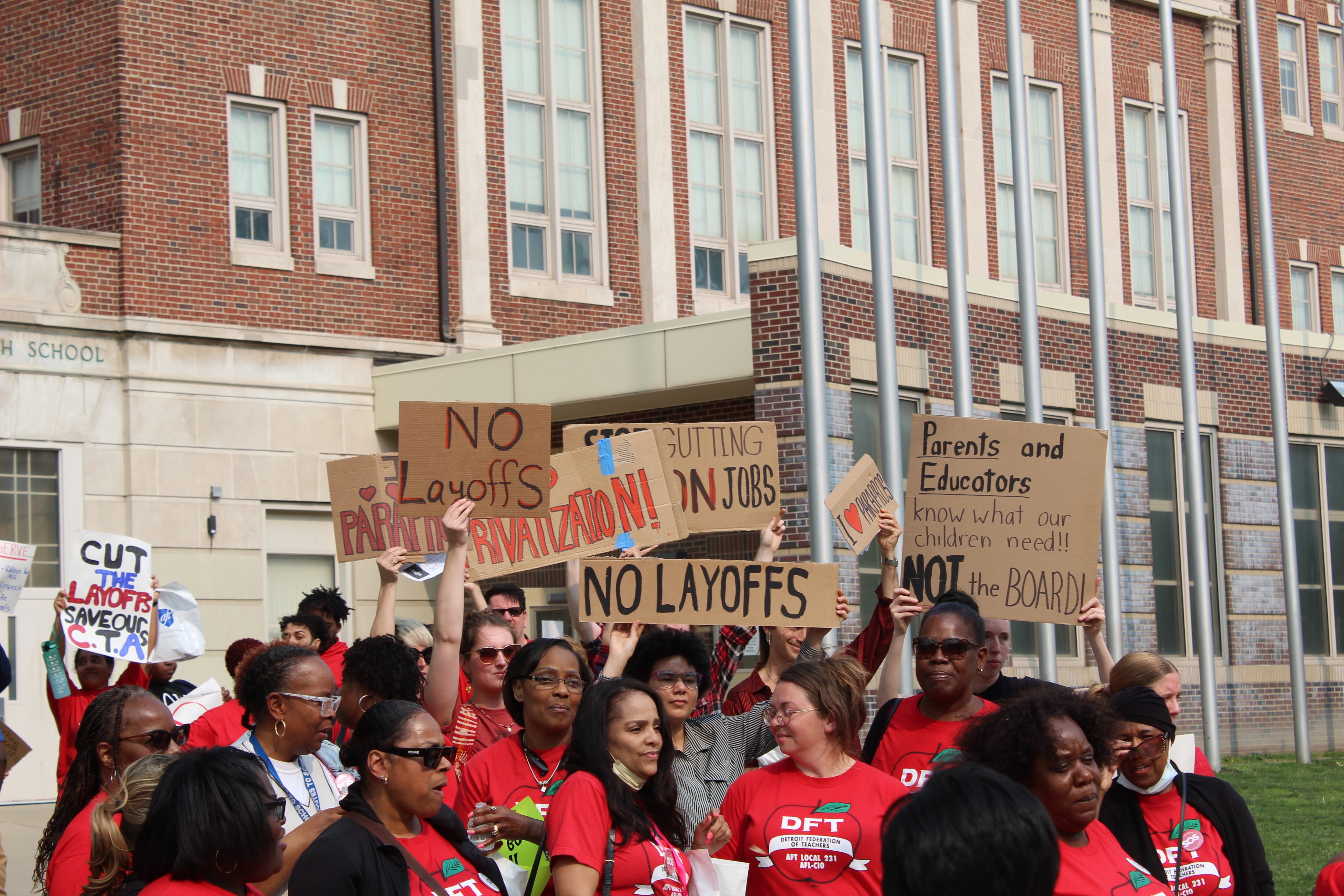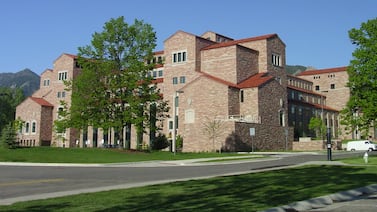With pending budget proposals that could significantly increase per-pupil funding for school districts, Detroit school officials are considering how any money could limit threatened cuts to school administrators.
Detroit Public Schools Community District Superintendent Nikolai Vitti told board members and the public Tuesday that if the Michigan Legislature adopts a final education budget that is more than Gov. Gretchen Whitmer’s budget, the district could provide its smaller schools with deans.
The school board would have to finalize how it would use those funds.
Last week, the Michigan House and Senate both passed school budgets that would increase per-pupil funding to $9,516 and $9,700, respectively, up from the current $9,150 per student. All proposals also would increase funding for at-risk students.
The district has budgeted based on Whitmer’s proposal for $9,608 per pupil, according to budget documents.
Although that is an increase over this year, the district faces a shortfall because costs are rising faster than revenue. DPSCD’s budget will shrink because of declining enrollment and the end of federal COVID relief aid.
The district proposes to reduce spending by eliminating deans of culture, assistant principals, school culture facilitators, college transition advisers, and kindergarten paraprofessionals.
Daniella Borum, a college transition adviser at Detroit School of Arts, said she’s worried the district’s proposal would not only jeopardize her position, but create more security issues, potentially leaving not enough staff members to monitor the halls. The proposal allocates the school one security guard next year, along with an assistant principal, and a counselor.
“That’s not enough for a six-story building,” she said.
The district already has offered its deans severance packages and transfers, Vitti said. The district’s restructuring plan proposes reducing school administrators, particularly at smaller schools.
That would leave about 35 schools without deans next school year, although most of those schools would have an assistant principal. Each school is expected to have at least one security guard. With more funding, smaller schools might be able to hire an additional guard.
Before the Tuesday meeting, members of the Detroit Federation of Teachers and Detroit Federation of Paraprofessionals gathered in front of Western International High School to rally against the proposed school budget cuts.
Over 60 district staff members and students spoke during public comment to denounce the cuts, stressing the toll they would take on students and remaining school employees.
“We are already struggling to provide for the needs that these students have,” said Jordan Weinstein, an early career teacher. She said her school could lose their school culture facilitator and attendance agent next year.
“They are worrying about not having a job next year, and the children are worrying about not having those people in our lives. We can not do restorative justice by ourselves as teachers and also be teachers, we have to have a building full of people to support that or we are just recreating the same old same old.”
Leeajhanae Wright, a senior at Henry Ford High School, said any staffing reductions at neighborhood high schools would have repercussions for students who already feel like they receive fewer resources than their peers at application and exam schools around the district.
“We don’t have a support system like the ones that they get,” she said. “We don’t have people at home. The only people we really have are the people inside the school building.”
The district’s restructuring plan seeks to create parity between small and large schools.
“Smaller schools obviously have fewer students, and application and exam schools need to consistently apply the higher standards that are offered to them for student attendance, behavior, and academic performance to address students that are requiring a disproportionate amount of resources,” Vitti told Chalkbeat in an email. “Students requiring that level of engagement will have more resources at neighborhood schools.”
School principals can decide whether to allocate a portion of their federal Title I funding to keep their school culture facilitators, paraeducators and college transition advisers, Vitti noted, and staff whose positions are eliminated can shift to alternative positions. Other schools will leave it up to displaced employees to decide whether to take another job in the district.
The district’s teachers union criticized the proposal.
“Every year Governor Whitmer has increased the per pupil funding which offsets any loss the district would have experienced,” said Lakia Wilson-Lumpkins, president of the Detroit Federation of Teachers, during public comment. “The district knew it wanted to reduce numbers in certain areas….They continued to hire as recently as this school year knowing full well that they intended to reduce and eliminate positions. The problems are numerous now.”
Others questioned why the district would not consider using either its $37.5 million rainy-day fund or an unrestricted $62 million surplus to pay for support staff next year.
Vitti said the board can choose to tap those funds, but they generally are intended for emergencies or one-time funding, and not for recurring expenses.
Ethan Bakuli is a reporter for Chalkbeat Detroit covering Detroit Public Schools Community District. Contact Ethan at ebakuli@chalkbeat.org.






